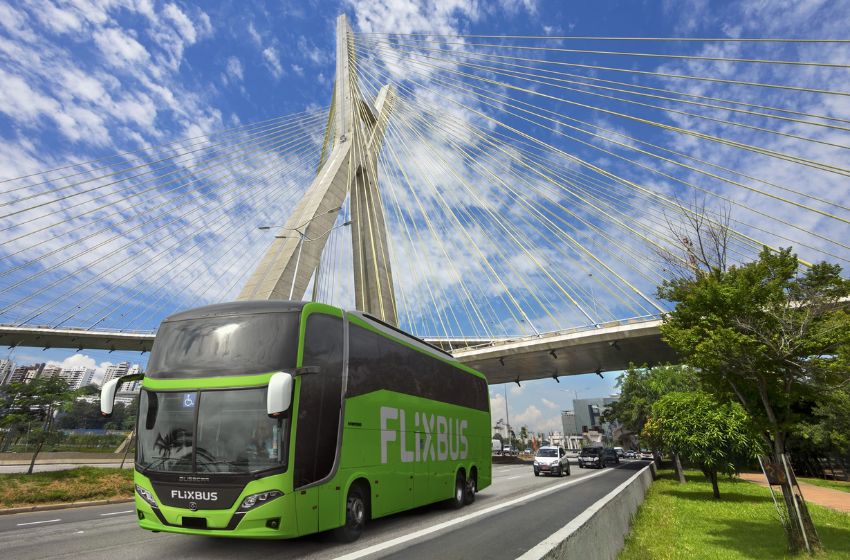Are you tired of compromising on your travel plans to reduce your carbon footprint? Look no further than FlixBus, the innovative transportation company leading the way in sustainable travel. With a commitment to reducing emissions and offering eco-friendly options for travelers, FlixBus is revolutionizing the way we explore the world. Join us as we dive into how this forward-thinking company is making a positive impact on our planet while still delivering top-notch travel experiences.
Introduction
In an era where environmental concerns are at the forefront of global discourse, sustainable travel has become a paramount consideration for conscientious travelers. FlixBus, a prominent player in the transportation industry, has emerged as a trailblazer in this regard. With a commitment to reducing its carbon footprint while providing affordable and convenient travel options, FlixBus has garnered attention for its innovative approach to sustainable mobility.

FlixBus: Redefining Bus Travel
FlixBus has revolutionized the perception of bus travel by offering a modern and comfortable alternative to traditional transportation methods. By utilizing a fleet of state-of-the-art coaches equipped with eco-friendly technologies, FlixBus ensures that passengers can enjoy a smooth and environmentally-conscious journey. These buses are not only energy-efficient but also adhere to strict emissions standards, contributing to a cleaner and greener environment. Furthermore, FlixBus prioritizes the use of renewable energy sources in its operations, further reducing its environmental impact.
Embracing Renewable Energy
One of the cornerstones of FlixBus’s sustainability efforts is its embrace of renewable energy sources. From investing in electric buses to partnering with renewable energy suppliers, FlixBus is committed to minimizing its reliance on fossil fuels. By incorporating renewable energy into its operations, FlixBus not only reduces its carbon footprint but also promotes the transition towards a more sustainable energy future. This proactive approach sets a positive example for the transportation industry and underscores FlixBus’s dedication to environmental stewardship.
Eco-Friendly Technologies
FlixBus integrates cutting-edge technologies into its operations to maximize fuel efficiency and minimize emissions. Advanced engine technologies, such as clean diesel engines and hybrid propulsion systems, enable FlixBus to achieve impressive fuel economy without compromising on performance. Additionally, the implementation of telematics systems allows for real-time monitoring of vehicle performance, enabling proactive maintenance and optimization of fuel efficiency. By leveraging these eco-friendly technologies, FlixBus sets a new standard for sustainable travel in the bus industry.
Optimal Route Planning
Efficient route planning is essential for minimizing fuel consumption and reducing emissions in the transportation sector. FlixBus employs sophisticated algorithms to optimize its routes, taking into account factors such as traffic patterns, passenger demand, and environmental considerations. By identifying the most efficient pathways, FlixBus can streamline its operations and minimize unnecessary fuel consumption. This not only reduces operating costs but also contributes to a significant reduction in greenhouse gas emissions. Through strategic route planning, FlixBus demonstrates its commitment to sustainability while enhancing the overall travel experience for passengers.
Carbon Offsetting Initiatives
In addition to reducing its own carbon footprint, FlixBus actively supports carbon offsetting initiatives to mitigate the environmental impact of its operations. Through partnerships with reputable carbon offset projects, such as reforestation efforts and renewable energy initiatives, FlixBus invests in projects that sequester or prevent the release of greenhouse gases. By participating in these initiatives, FlixBus effectively neutralizes the emissions generated by its fleet, making each journey carbon-neutral. This proactive approach exemplifies FlixBus’s commitment to environmental responsibility and sets a positive example for the broader transportation industry.

Conclusion
As concerns about climate change continue to escalate, the need for sustainable transportation solutions has never been more apparent. FlixBus has emerged as a leader in this space, demonstrating a steadfast commitment to reducing its carbon footprint while providing affordable and convenient travel options. Through initiatives such as embracing renewable energy, integrating eco-friendly technologies, optimizing route planning, and supporting carbon offsetting projects, FlixBus sets a new standard for sustainable travel in the bus industry. By prioritizing environmental stewardship and innovation, FlixBus paves the way for a cleaner, greener future in transportation.



